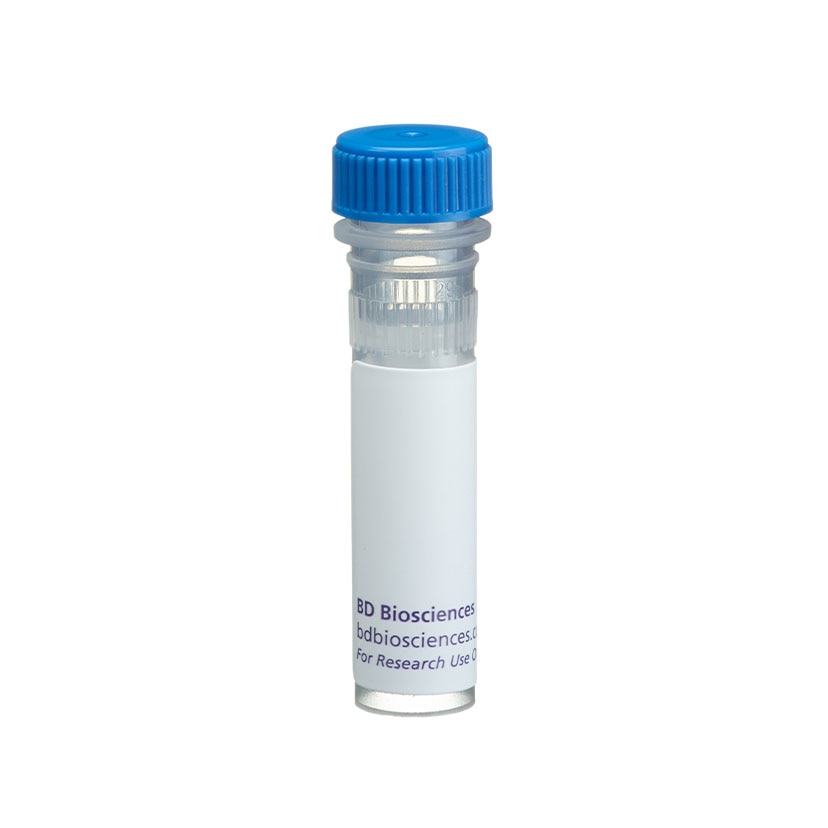-
Reagents
- Flow Cytometry Reagents
-
Western Blotting and Molecular Reagents
- Immunoassay Reagents
-
Single-Cell Multiomics Reagents
- BD® OMICS-Guard Sample Preservation Buffer
- BD® AbSeq Assay
- BD® Single-Cell Multiplexing Kit
- BD Rhapsody™ ATAC-Seq Assays
- BD Rhapsody™ Whole Transcriptome Analysis (WTA) Amplification Kit
- BD Rhapsody™ TCR/BCR Next Multiomic Assays
- BD Rhapsody™ Targeted mRNA Kits
- BD Rhapsody™ Accessory Kits
- BD® OMICS-One Protein Panels
- BD OMICS-One™ WTA Next Assay
-
Functional Assays
-
Microscopy and Imaging Reagents
-
Cell Preparation and Separation Reagents
Old Browser
This page has been recently translated and is available in French now.
Looks like you're visiting us from {countryName}.
Would you like to stay on the current location site or be switched to your location?
BD Pharmingen™ Purified Mouse Anti-Human Sur-2
Clone D27-1805 (RUO)




Western blot analysis of Sur-2. HeLa nuclear extracts were probed with anti-Sur-2 (clone D27-1805, Cat. No. 550429) at concentrations of 5.0 µg/ml (lane 1), 1.0 µg/ml (lane 2), and 0.2µg/ml (lane 3). Sur-2 is detected at ~140 kDa.



Regulatory Status Legend
Any use of products other than the permitted use without the express written authorization of Becton, Dickinson and Company is strictly prohibited.
Preparation And Storage
Recommended Assay Procedures
Applications include western blot analysis (0.2-5.0 µg/ml). HeLa nuclear extracts are recommended as a positive control.
Product Notices
- Since applications vary, each investigator should titrate the reagent to obtain optimal results.
- Please refer to www.bdbiosciences.com/us/s/resources for technical protocols.
- Caution: Sodium azide yields highly toxic hydrazoic acid under acidic conditions. Dilute azide compounds in running water before discarding to avoid accumulation of potentially explosive deposits in plumbing.
SUR-2 (suppressor of ras) is a gene that was originally discovered in the vulval signaling pathway of the nematode Caenorhabditis elegans. Genetic studies suggest that the product of the SUR-2 gene encodes a protein Sur-2, that acts downstream of the Raf/Map kinase pathway. The human homolog of SUR-2 (hSUR-2) was shown to interact with the E1A zinc finger domain from adenovirus. The adenovirus E1A protein can bind to a number of cellular proteins to alter cell cycle progression. E1A exerts this change in the cell cycle by interacting with the transcriptional machinery of the cell. In vitro studies indicate that Sur-2 interacts with the E1A zinc finger protein and the Srb/Mediator transcriptional multiprotein complex. These studies suggest that Sur-2 may play a role as a bridge between E1A and the Srb/Mediator multiprotein complex. However, the roles of Sur-2 in regulating the transcriptional activity of the Srb/Mediator complex and E1A remain to be fully elucidated. Sur-2 has been reported to migrate in SDS/PAGE at 150 kDa2, but our studies indicate that it migrates at approximately 140 kDa. The antibody recognizes human Sur-2. A synthetic peptide corresponding to the N-terminus region of human Sur-2 (METQLQSIFEEVVKTEVIEC) was used as immunogen.
Development References (3)
-
Blobel GA. CREB-binding protein and p300: molecular integrators of hematopoietic transcription. Blood. 2000; 95(1):745-755. (Biology). View Reference
-
Boyer TG, Martin ME, Lees E, Ricciardi RP, Berk AJ. Mammalian Srb/Mediator complex is targeted by adenovirus E1A protein. Nature. 1999; 399(6733):276-279. (Biology). View Reference
-
Singh N, Han M. sur-2, a novel gene, functions late in the let-60 ras-mediated signaling pathway during Caenorhabditis elegans vulval induction. Genes Dev. 1995; 9(18):2251-2265. (Biology). View Reference
Please refer to Support Documents for Quality Certificates
Global - Refer to manufacturer's instructions for use and related User Manuals and Technical data sheets before using this products as described
Comparisons, where applicable, are made against older BD Technology, manual methods or are general performance claims. Comparisons are not made against non-BD technologies, unless otherwise noted.
For Research Use Only. Not for use in diagnostic or therapeutic procedures.
